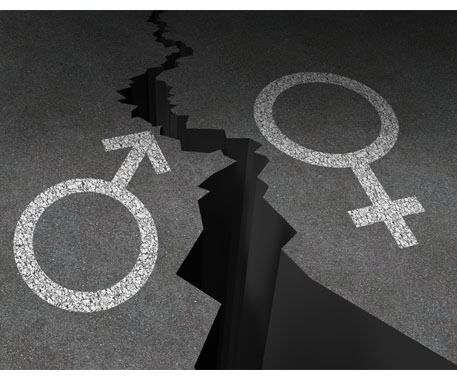STATE GOVERNMENT
Historic equal pay bill heads to governor

The Equal Pay Opportunity Act (HB 1506), sponsored by Rep. Tana Senn (D- Mercer Island), is officially headed to the desk of Gov. Jay Inslee, who supports the legislation and is expected to sign it into law. Different versions of the bill previously passed both houses of the Legislature, were “merged” together in conference committee, and approved (again) by strong bipartisan majorities in the Senate on Tuesday and in the House on Wednesday.
“Our heartfelt thanks go to Representative Senn and the other state legislators who persistently pursued this historic legislation,” she added.
It was 1943 when Washington passed a law making it illegal to pay a woman less than a man for similar work. Three-quarters of a century later, a white woman working full time in Washington state makes 76.5 cents to the dollar that her male counterpart earns. It’s worse for women of color. African American women make 61.1 cents; Native American women 59.8 cents; and Latinas are at the bottom of the ladder, making only 46.3 cents to every dollar paid to white men doing the same work.
HB 1506 updates, for the first time since its passage in 1943, the Washington State Equal Pay Act by, among other things:
► Defining “similarly employed” as jobs that require similar skill, effort, and responsibility, and are performed under similar working conditions;
► Prohibiting employers from imposing pay secrecy policies;
► Preventing discrimination by gender in providing career advancement opportunities;
► Banning employers from retaliating against employees who file complaints, discuss wages or seek advancement opportunities; and
► Ensuring employees are entitled to administrative and civil remedies in the event of violations.
While the main goal of the Equal Pay Opportunity Act is to reduce the wage gap between men and women, it goes a step further. Unlike laws in other states that only offer protections for employees who are paid less on the basis of gender, Senn’s legislation extends those protections to employees who are offered lesser career advancement opportunities based on gender. By requiring equal growth opportunities and fair treatment in the workplace, the bill seeks to ensure women will receive the same promotional opportunities as men within a company.
The House has passed a version of this bill four years in a row, but this is the first time the Senate, now with Democrats in the majority, has given it its seal of approval as well.
“Too often, women performing the same work as men and who have the same education as men are paid less than men, see fewer opportunities to move up in their fields and struggle to meet the basic needs of their families or to save for the future,” said Rep. Mike Sells (D-Everett), who chairs the House Labor and Workplace Standards Committee. “They are living with a financial deficit that not only hurts their families, but also stifles economic growth and holds our communities back. All workers deserve a fair shot and an equal opportunity to succeed, and that’s what this bill will give them.”
In addition to the Washington State Labor Council, HB 1506 was supported by several businesses, women’s groups, classroom students and other organizations including the United Food and Commercial Workers, MomsRising, Legal Voice, the Economic Opportunity Institute, the League of Women Voters, and the Washington Technology Industry Association.